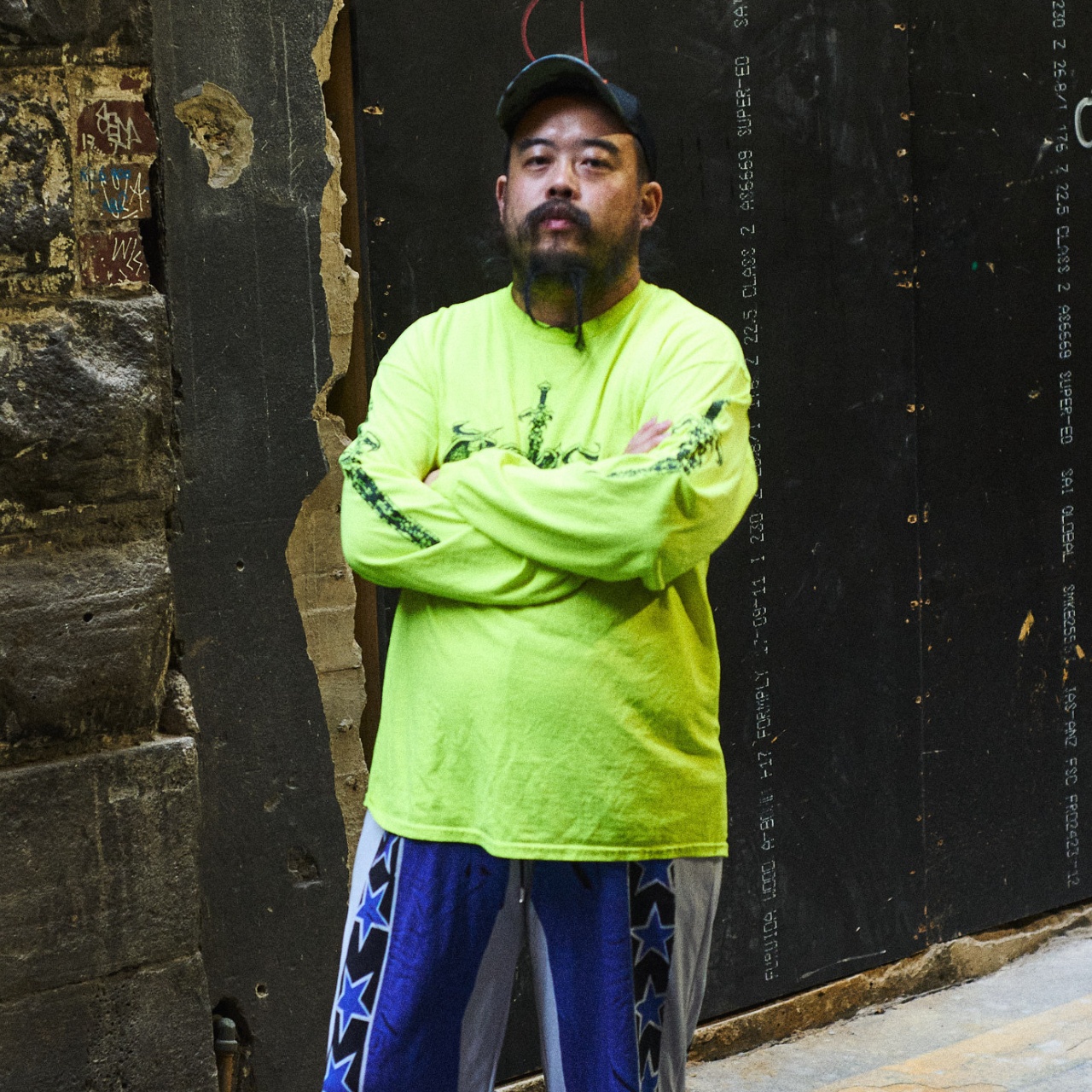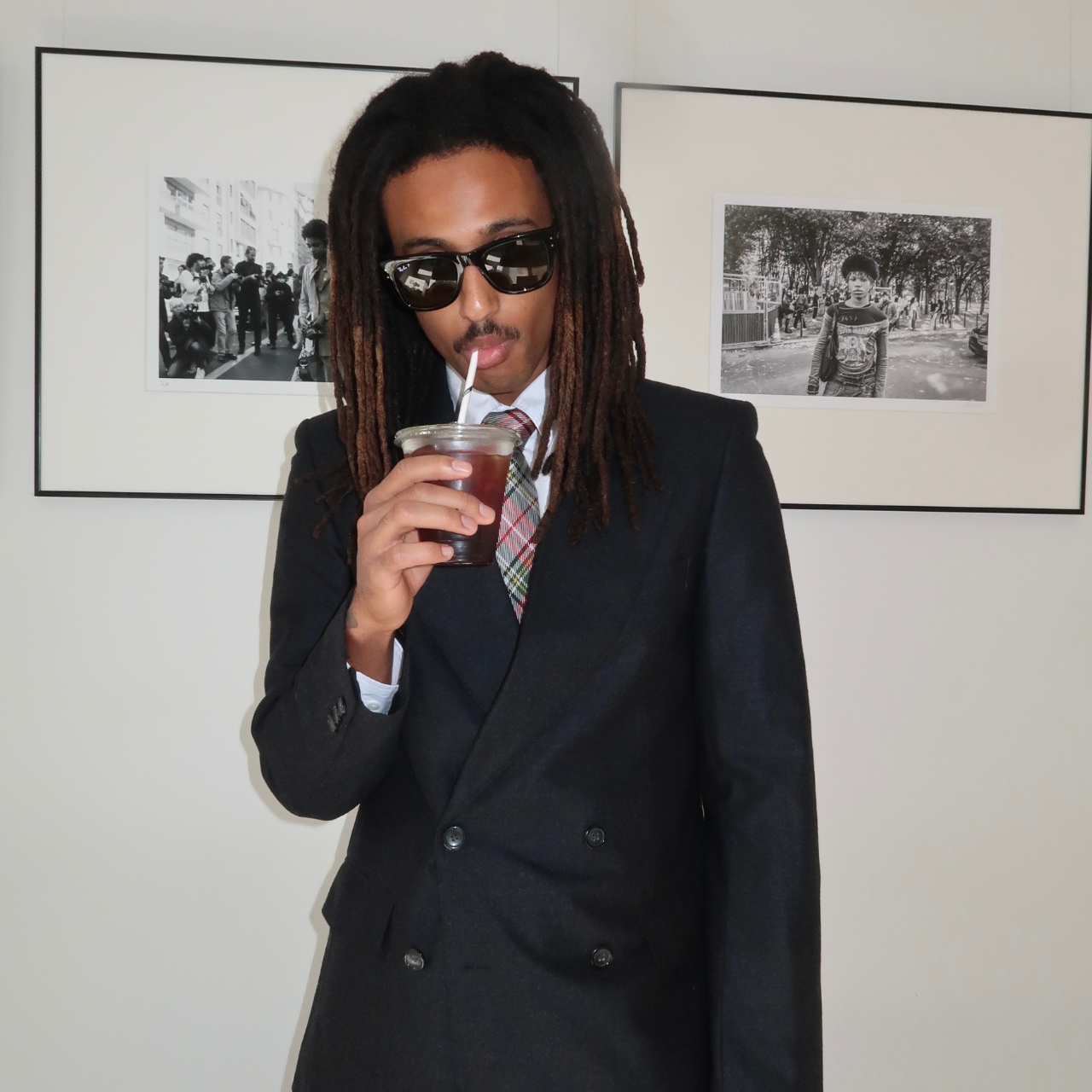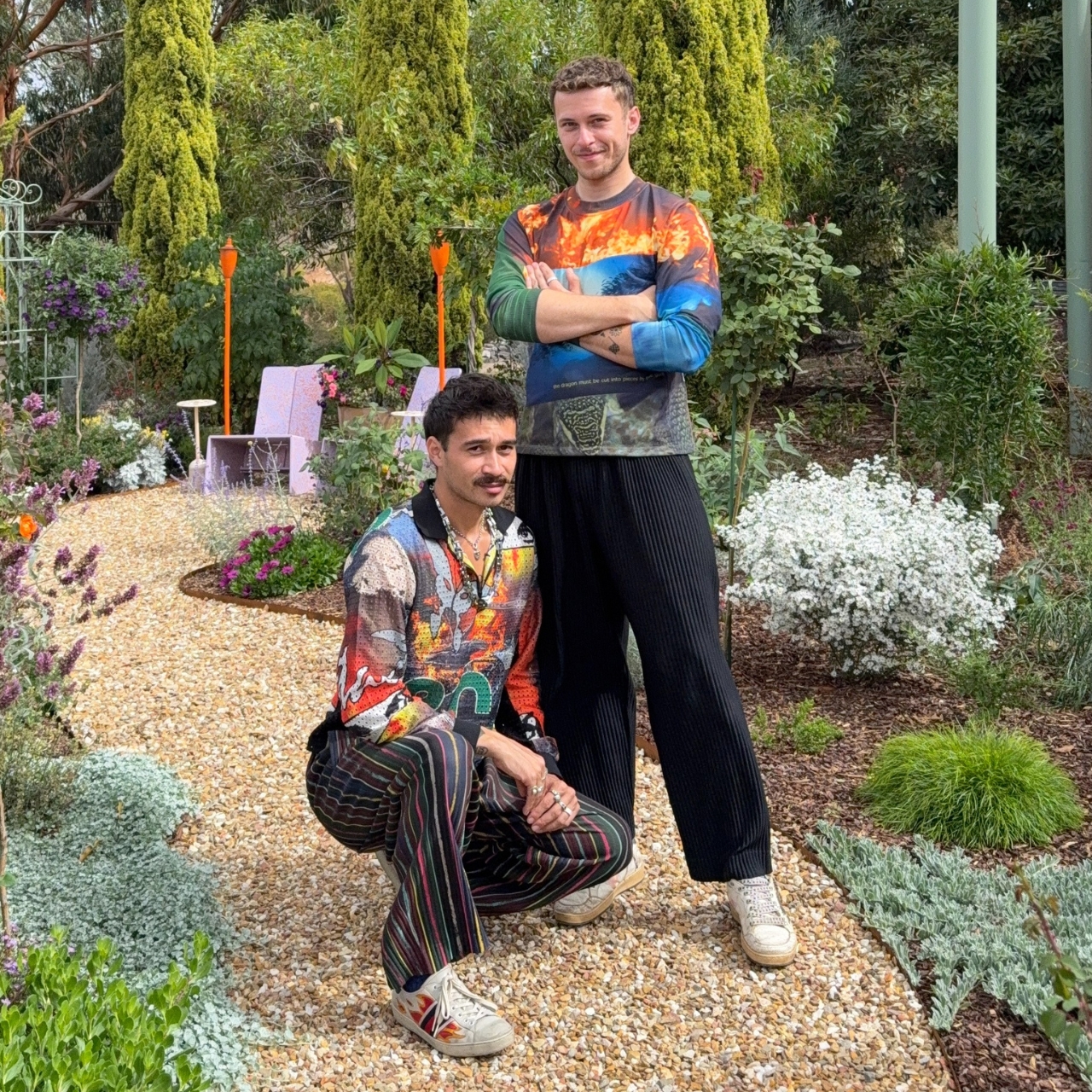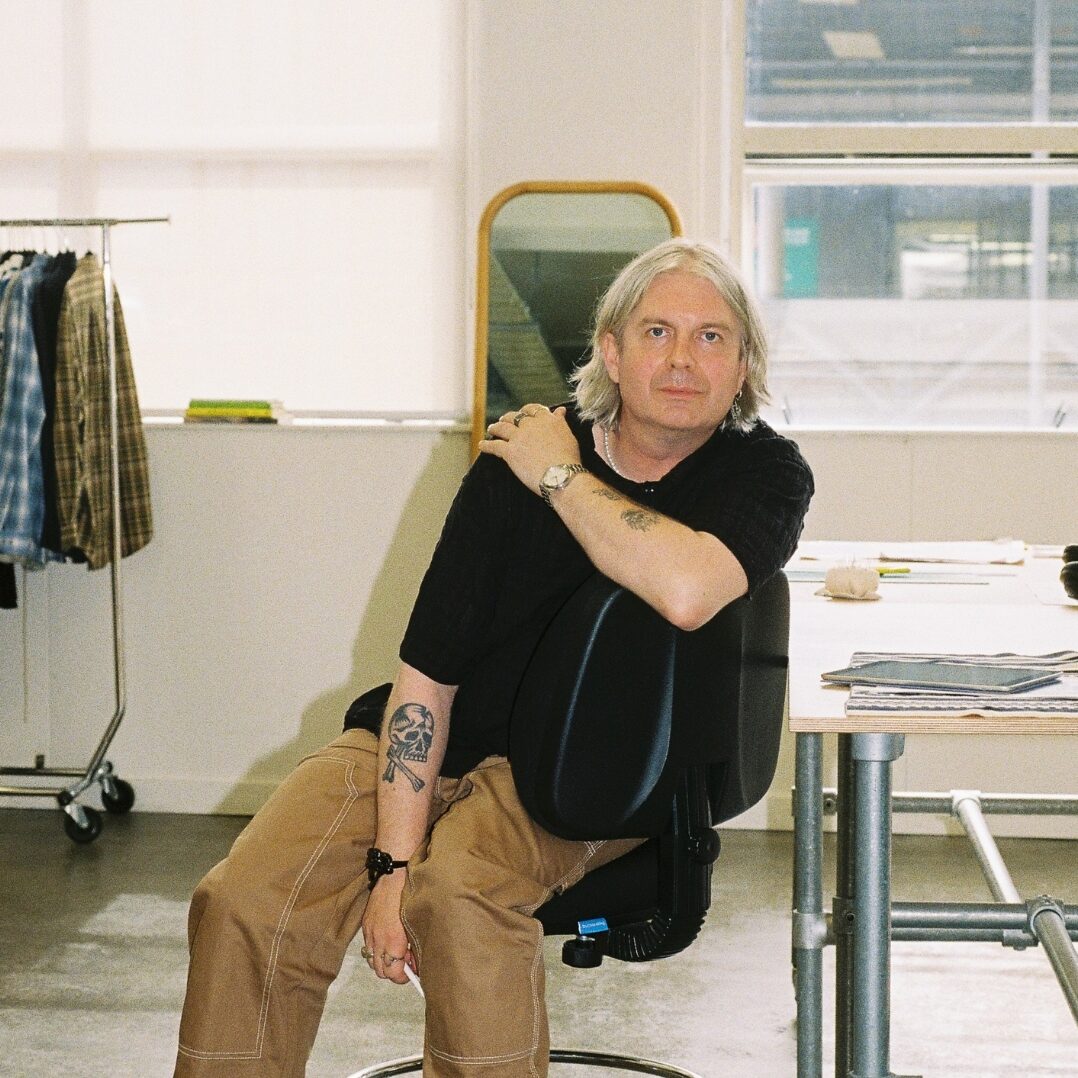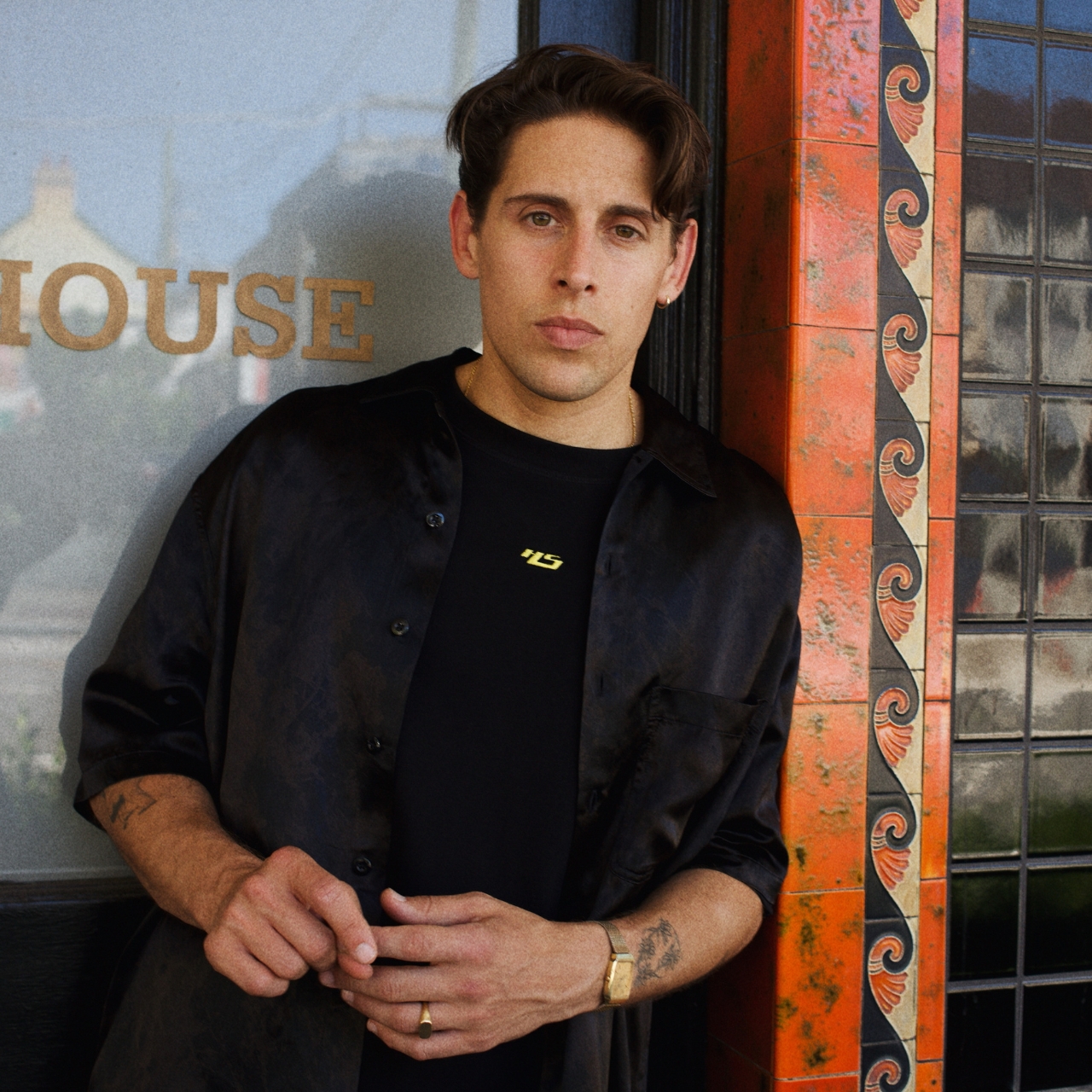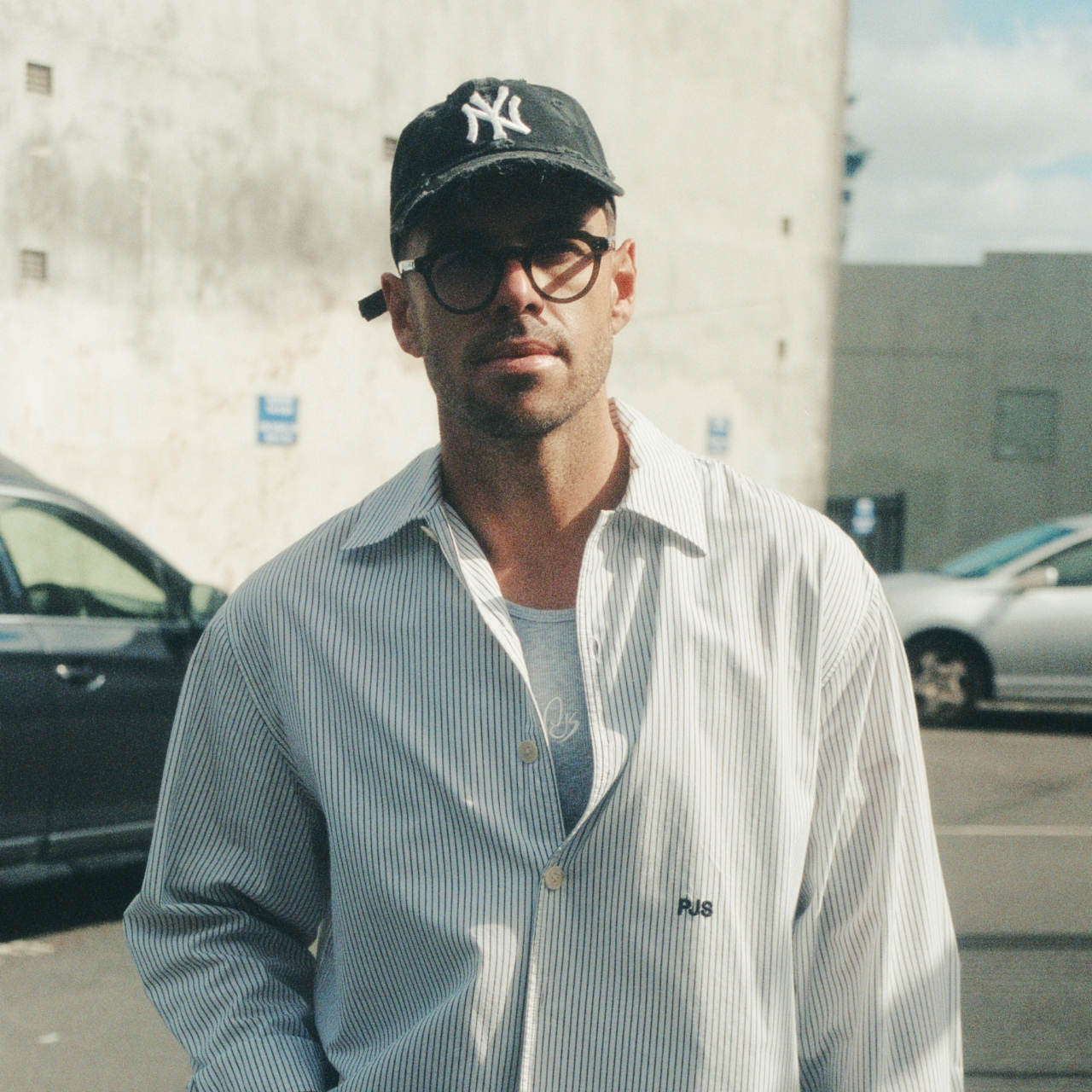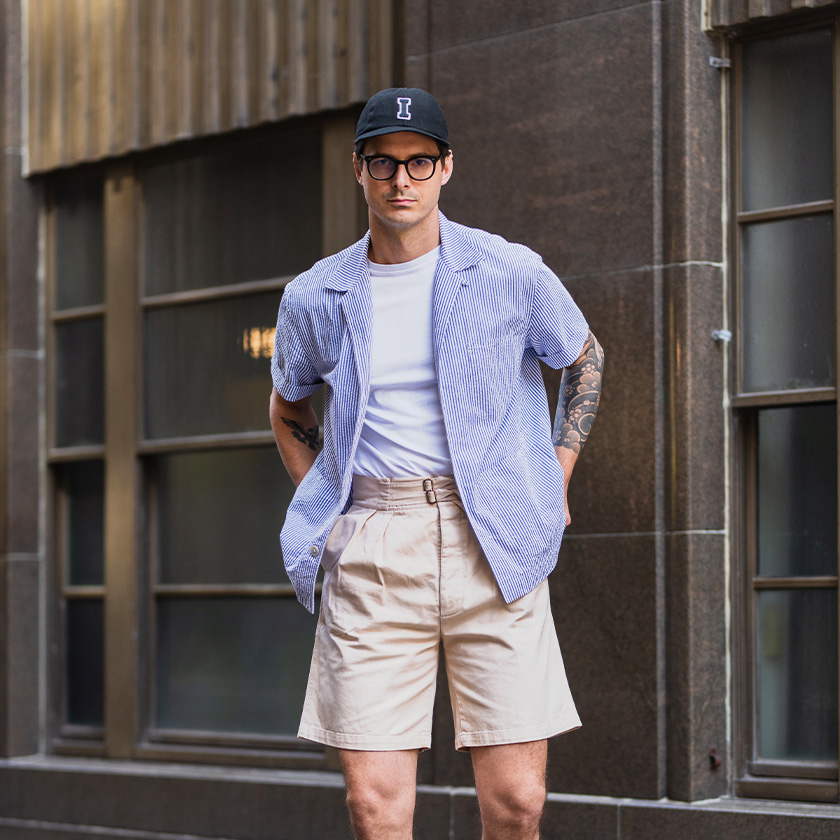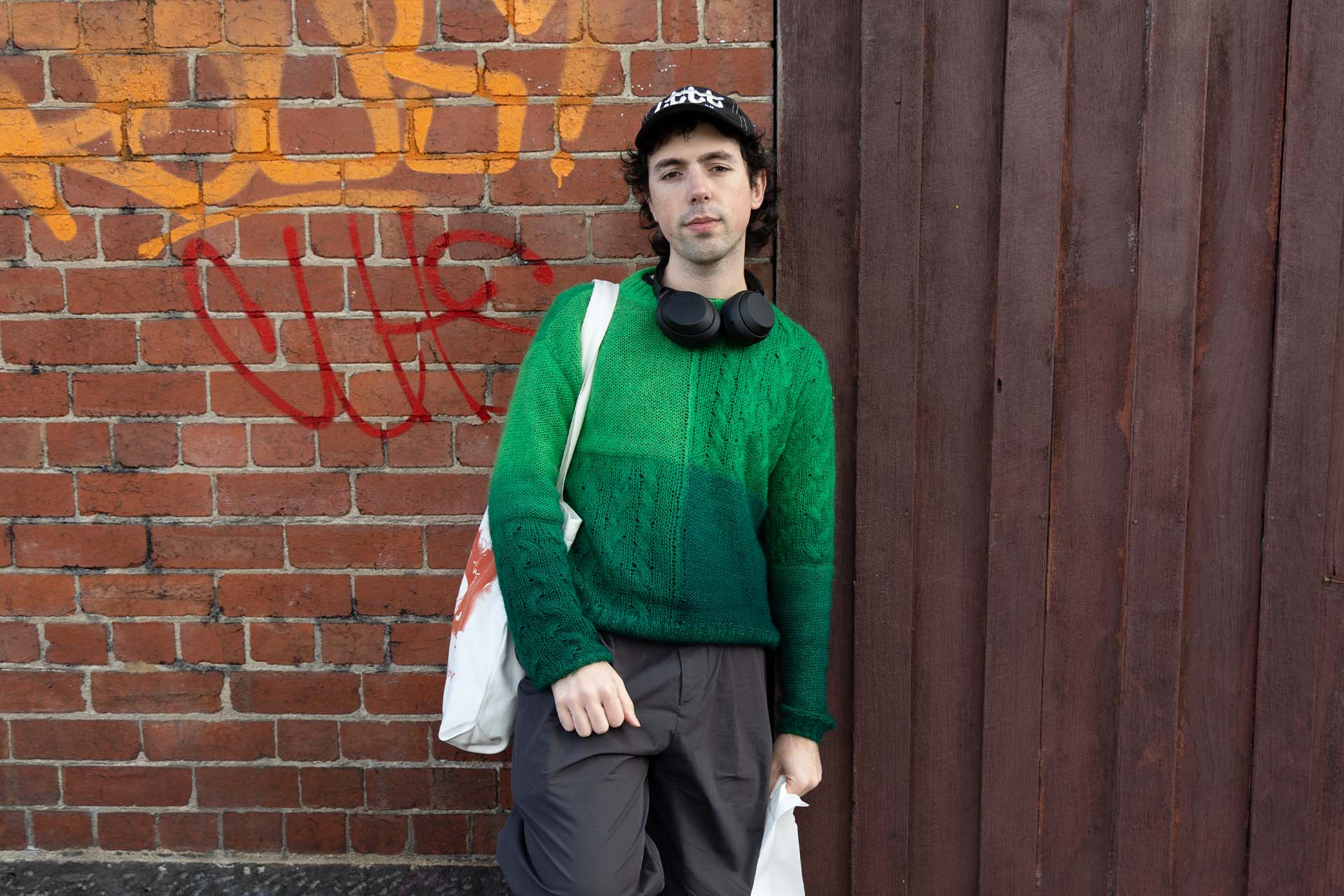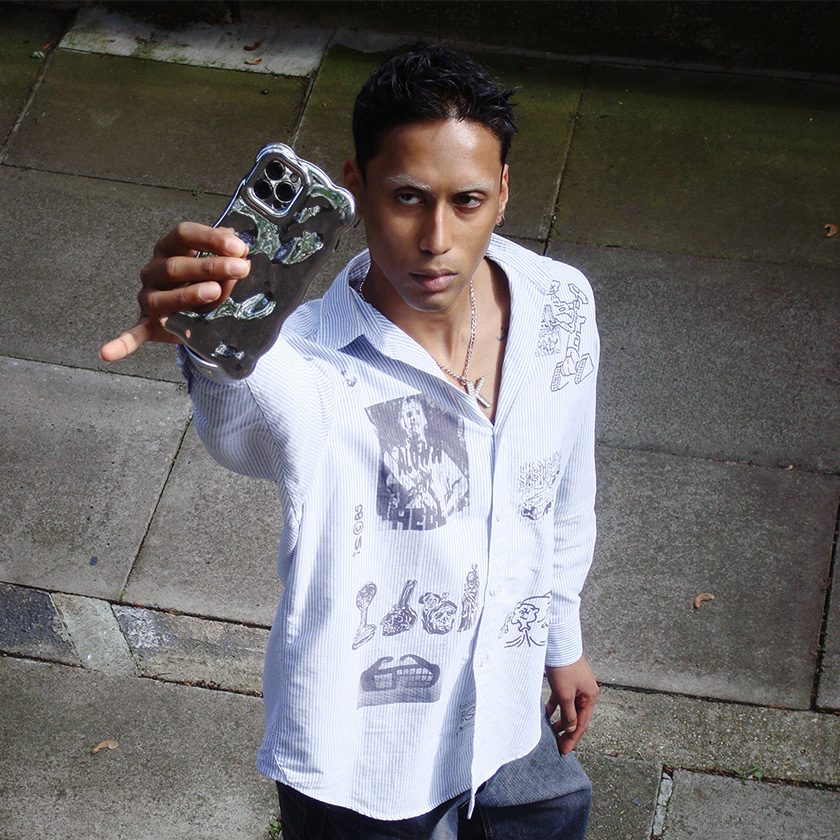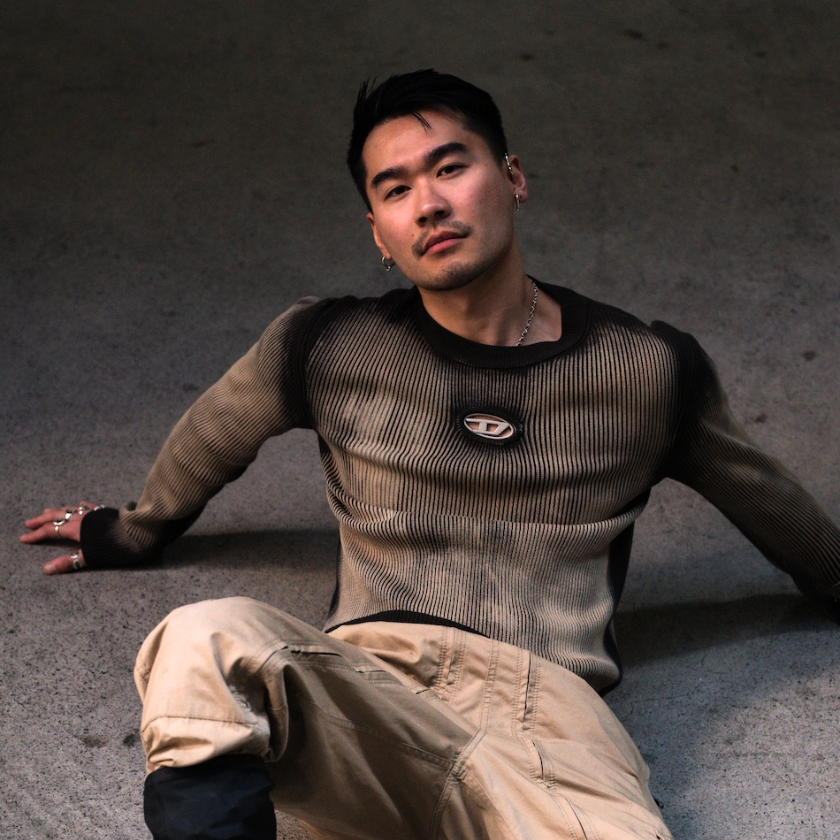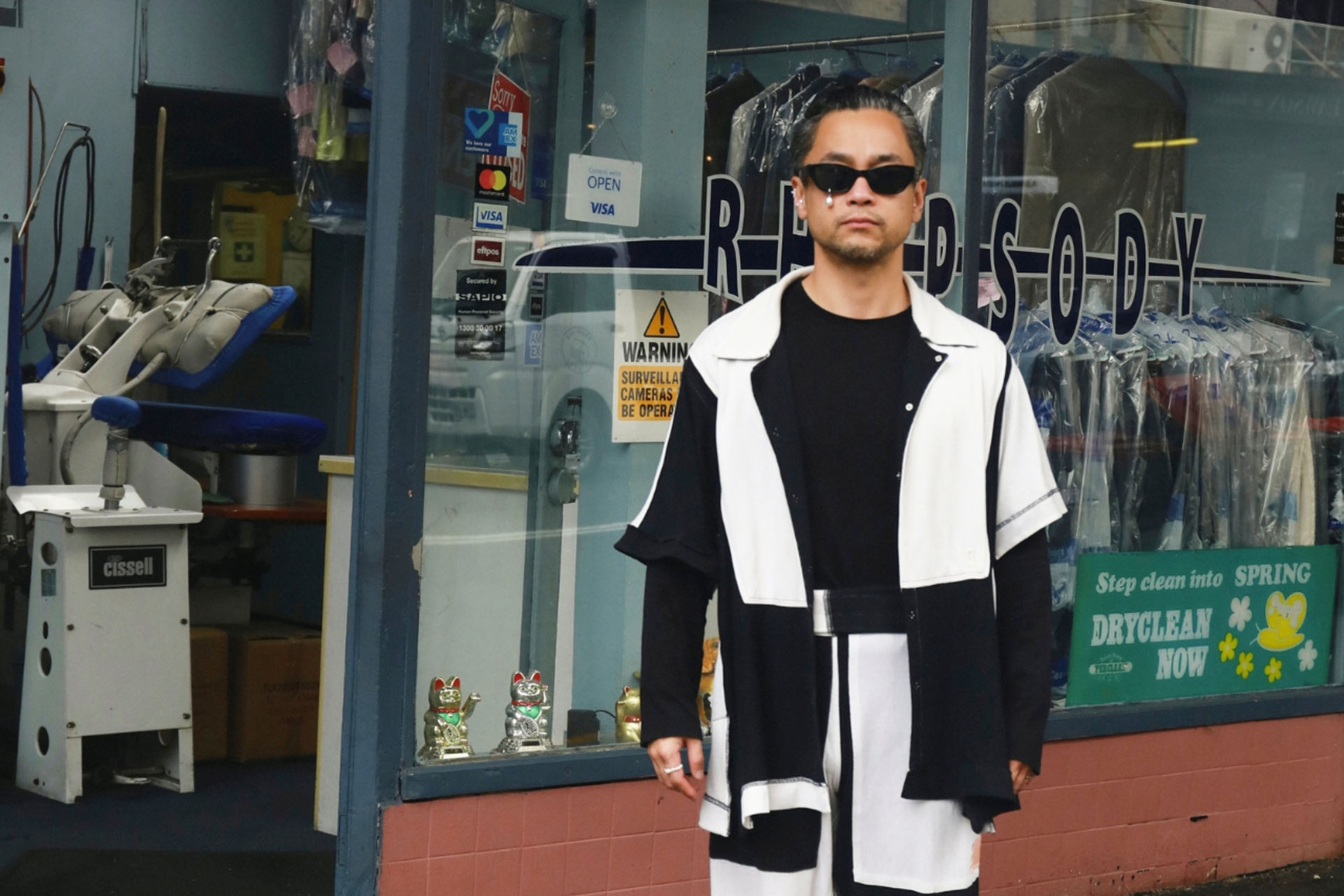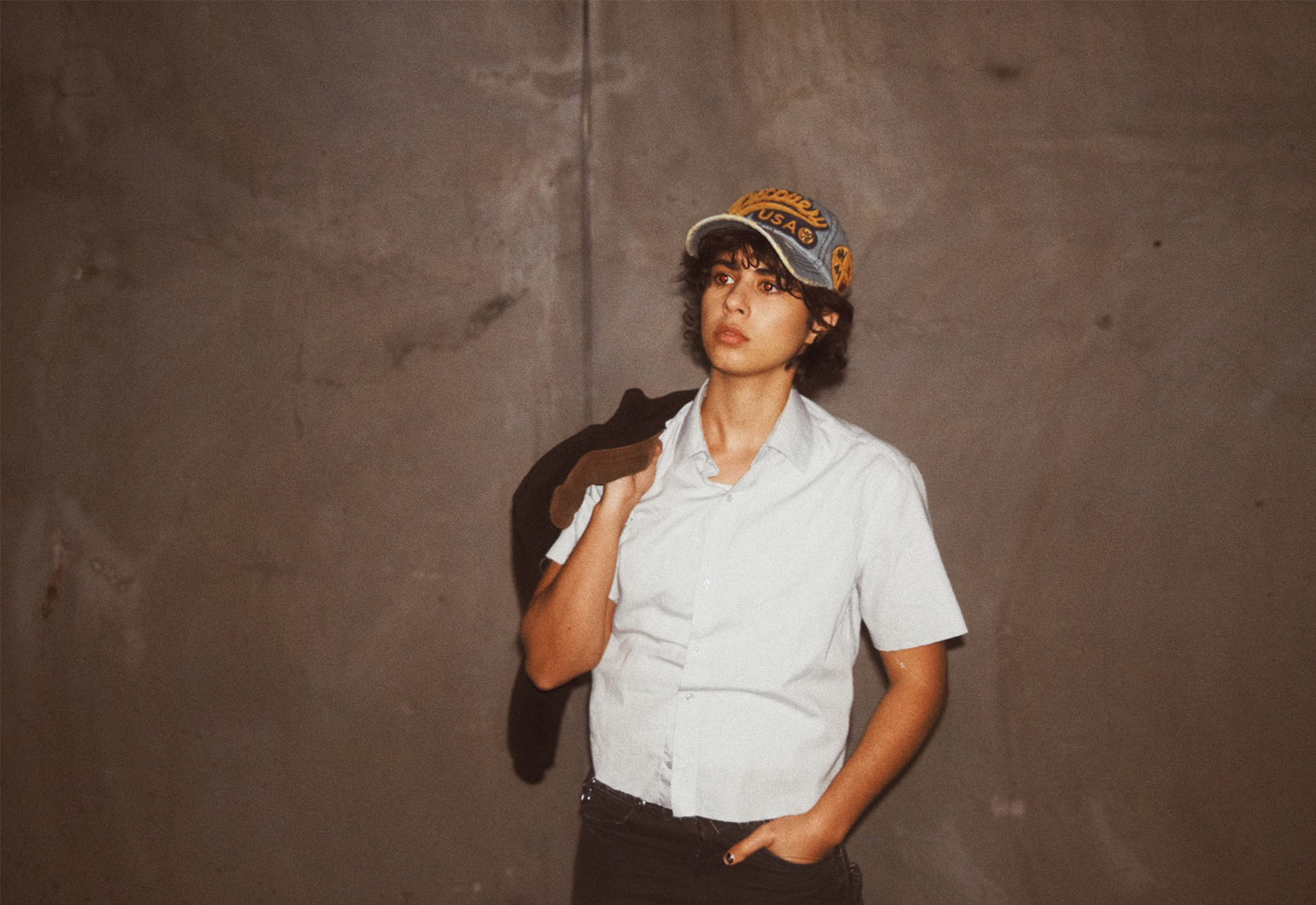Five Fits With: designer and Haydenshapes founder, Hayden Cox
The multidisciplinary artist that has been designing the world's coolest surfboards for over 25 years.
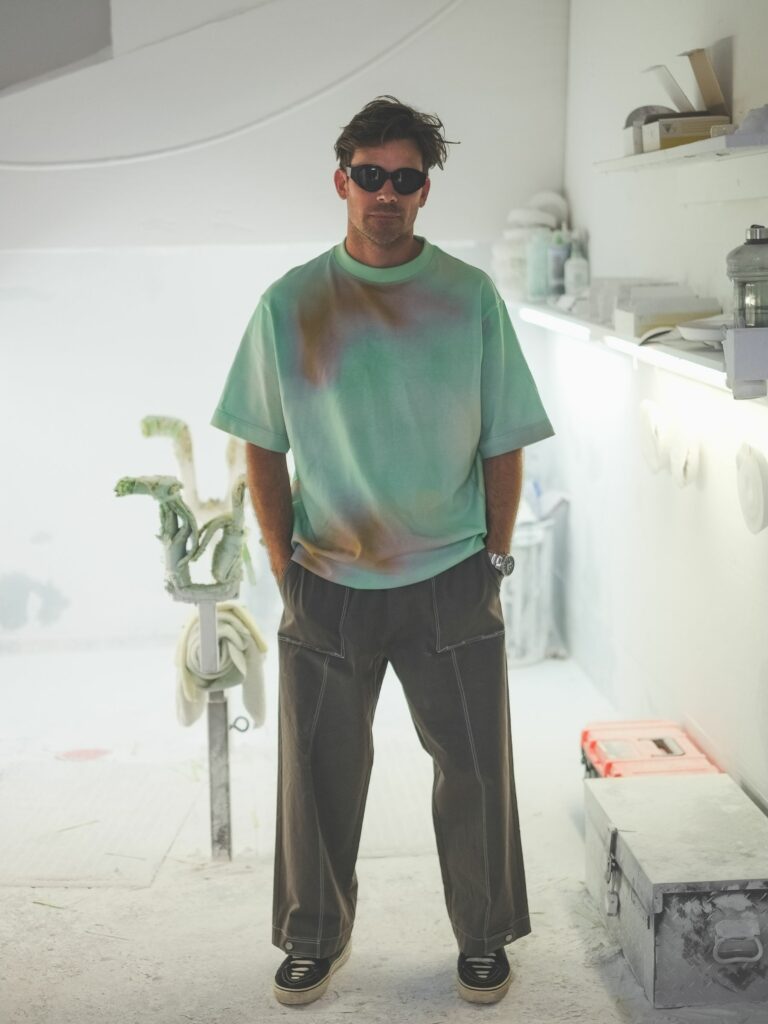
HAYDEN COX has been designing, shaping, making—and surfing—his own surfboards since he was 15 years old. It was a childhood manifestation that he would one day run his own company, making boards for surfing pros like Craig Anderson and Dion Agius. Well, in 2023, there’s not a name in the surfing—and design—world that hasn’t come across his work or eponymous global brand, Haydenshapes.
Cox admits that while surf culture isn’t how it’s perceived to the masses—”it can be a very insular place”—he’s always been a surf “purist” at heart, spending every weekend as a kid catching the bus to Mona Vale to surf the local breaks. But it’s his curiosity for contemporary ideas in and around the surf industry that allowed him to dream bigger than the next wave, knowing early own he wanted to make surfboards for a living; “I never got too caught up in what everyone else was doing.”
For this week’s Five Fits With, you’ll quickly learn the Hayden Cox is much more than a surfboard designer, but a bonafide artist whose work spans surfboards, architecture, furniture and even fashion, with a recent collaboration with iconic Australian fashion label, Dion Lee, that showcases a collection of fashion-meets-surf wetsuits and ready-to-wear clothing. It’s such displays of creativity, in and around the surf world, that feeds his overall creative vision, which often results in spectacular displays of art.
Fit One
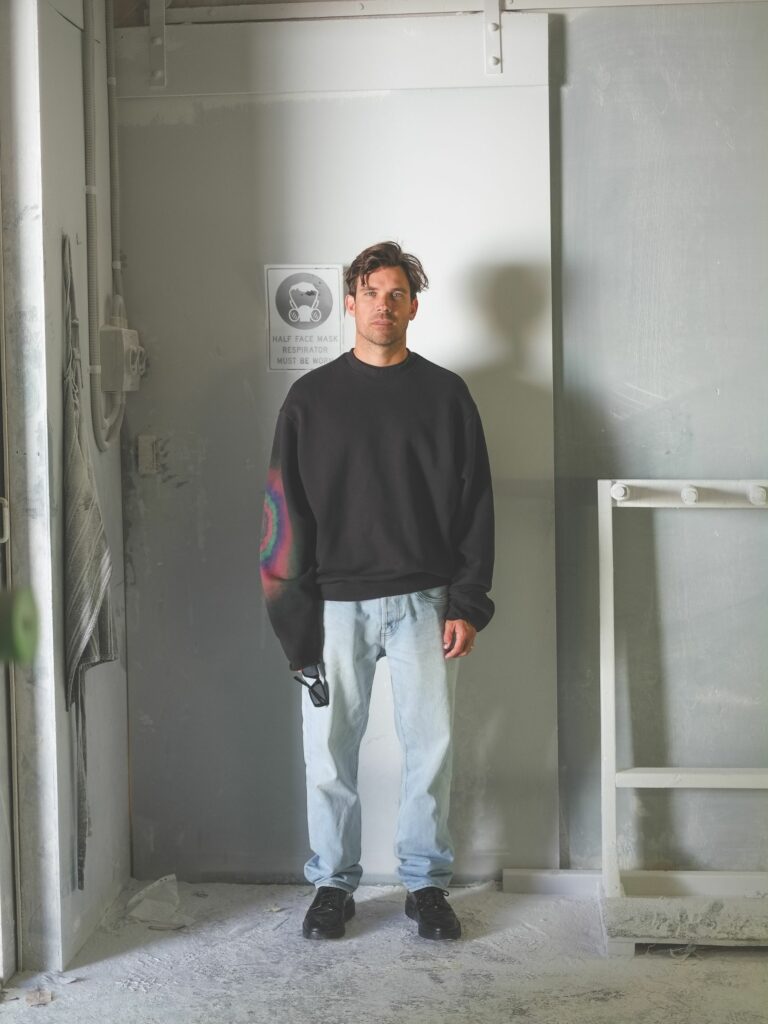
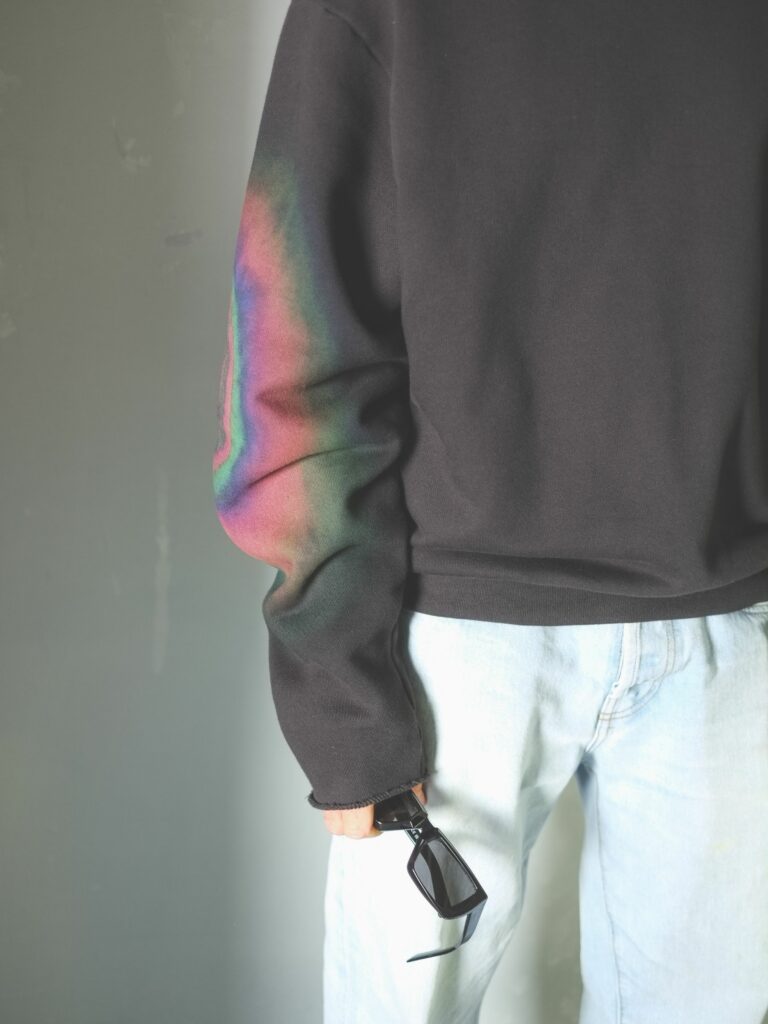
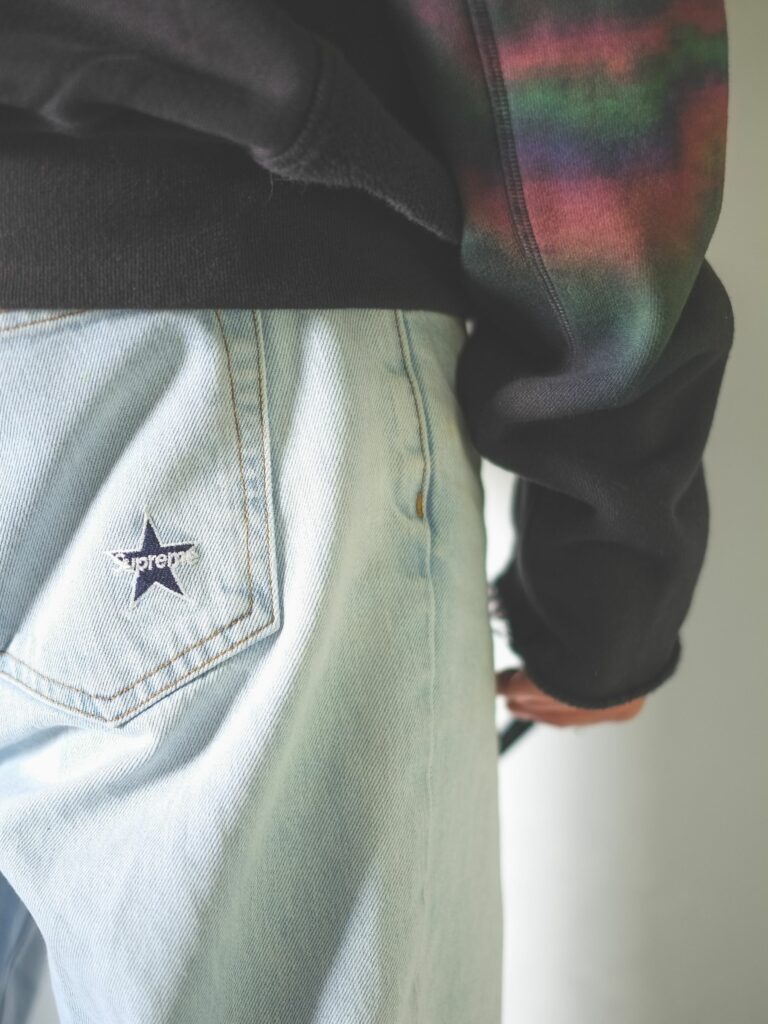
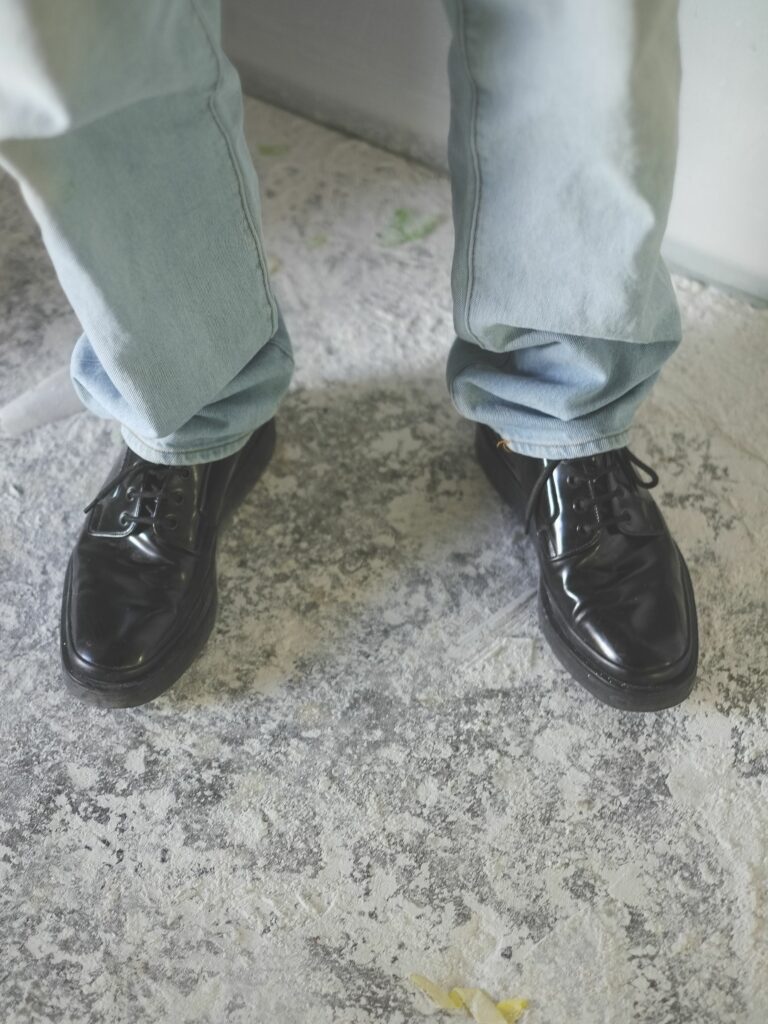
Nice to see you, Hayden! Thanks for joining us for this week’s episode of Five Fits With. To start, can you tell us a bit about where you grew up?
I grew up in Sydney around the North Shore zone. Suburbia mostly, train stations, busy roads etc. My parents would take us on camping trips every school holidays to Jervis Bay which is where I learned to surf at around four years old. When I got a little older at around 13, I was out. I’d catch the bus to Mona Vale every weekend and hang at the beach.
And growing up in the ’90s and early 2000s, what was considered “stylish” or “cool” in Sydney and the places you would frequent?
I feel like what I considered cool in my world existed more in the pages of surf magazines than the town I grew up in. That ’90s rebellion and anti-establishment surf era was a very influential moment for me around the time I started the brand. It was Oakley blades, below the knee trunks, flame graphics, distressed denim, punk music, iconic surf films.
Is there anything that strikes out as special to you when you think about home?
Growing up in an environment that really encouraged my love of making things, being hands on with all types of projects. My mum liked to develop homes, so we would live in them, do them up and then move onto the next one and repeat. That was so my parents could afford to send my four siblings and I to a private school, so all the kids we were roped in to contributing and doing our bit to help out. Painting, putting insulation into the wall frames, moving soil… all types of these type of things. I’ve always felt right at home in a workshop and I think growing up around that really influenced my design style today which typically starts with building physical prototypes from ideas in my head, rather than starting with a sketch.
Where do you call home nowadays?
Palm Beach on Sydney’s Northern Beaches.
Fit Two

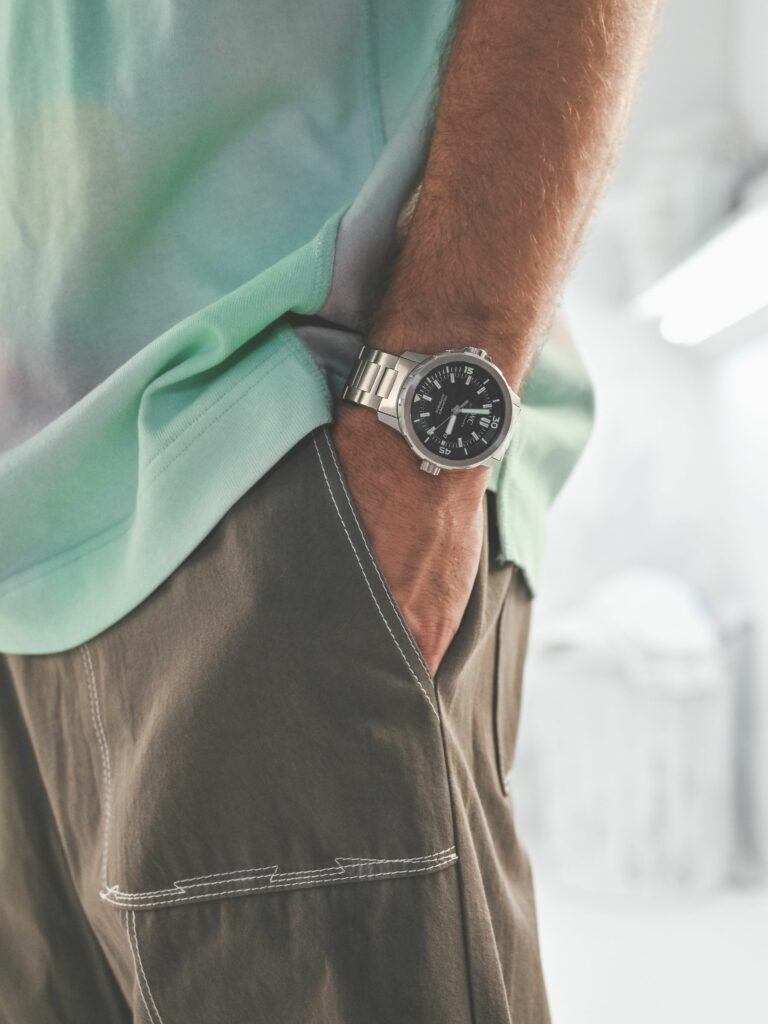
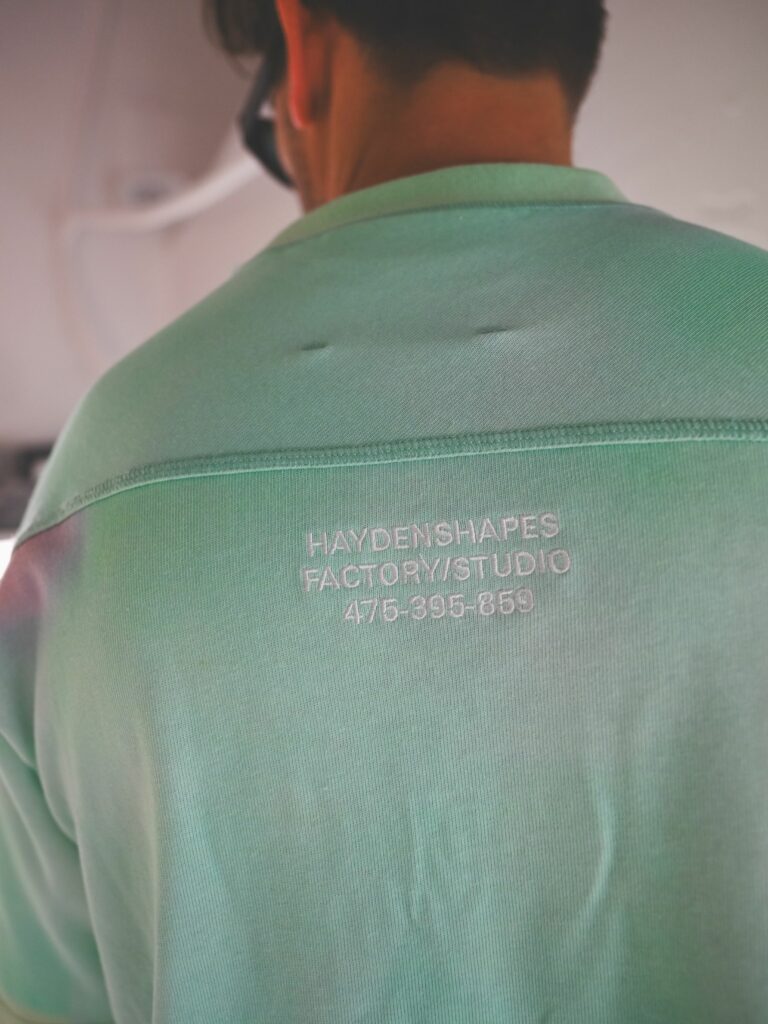

Would you say that growing up, surf culture was a pretty important part of your life? Did it help inform your creative process?
The thing about surf culture is that it can be a very insular place. I was the kid who caught the bus to the beach, I didn’t grow up by a beach. What the masses perceive as surfing is very different to the core end and more ‘purist’ side of our industry. As a board builder, I’m definitely a purist at heart, but I’m also intrigued by contemporary ideas that fundamentally contribute to our industry and I think that was something that started for me as a kid dreaming up ideas of making surfboards and having my own brand. I never got too caught up in what everyone else was doing.
Can you remember when and how you first fell in love with fashion and design?
I’ve always been really influenced by the creativity within fashion and ways that certain ideas could be applied back to surfboards. In 2014, I did a project with Alexander Wang where I developed custom silk fabric with a supplier to apply the marble print graphic to the board without adding weight and affecting how it surfed, or causing the dye to bleed during lamination. It was around that time that I really took more interest in textiles and the fashion design space in general and I started storyboarding ideas in my head of what a Haydenshapes collection might eventually look like. I held back for a long time, because my team of surfers all had major clothing sponsors and those larger corporate surf brands were very anti anything that might ‘conflict’ from a marketing and product perspective within their roster of riders. So timing for me was everything and the path we’ve taken with our ready-to-wear is non typical to traditional surf apparel and surf shop distribution and lives more in the contemporary fashion space.
What inspires you as a designer and artist today?
Material and fabrics have always influenced me more than anything else along with the way they interact with cut and form. I’ve always been someone that’s invested in quality and pieces you can wear over and over and keep forever. Japanese Nylons and denim, The Woolmark Company Certified Merino wool, recycled cotton’s, limestone neoprene are some I’m currently really into.
I read somewhere that at 15, you used to fantasise about making surfboards for a living. Now, you’re one of the most celebrated surfboard designers in the world. How did this “manifestation” become a reality?
Making a start. For me, that was when I was 15. I spent my high school holidays doing work experience at a surfboard factory, I printed my first logos using our inkjet printer and just built things up, board by board. It’s been 25 years now and Haydenshapes is an independently owned brand, currently sold in around 70 countries. I am still learning daily, up-skilling myself and staying curious. I’m actually more comfortable learning than leading but I’ve found that both are equally as important in business and building a brand.
Fit Three
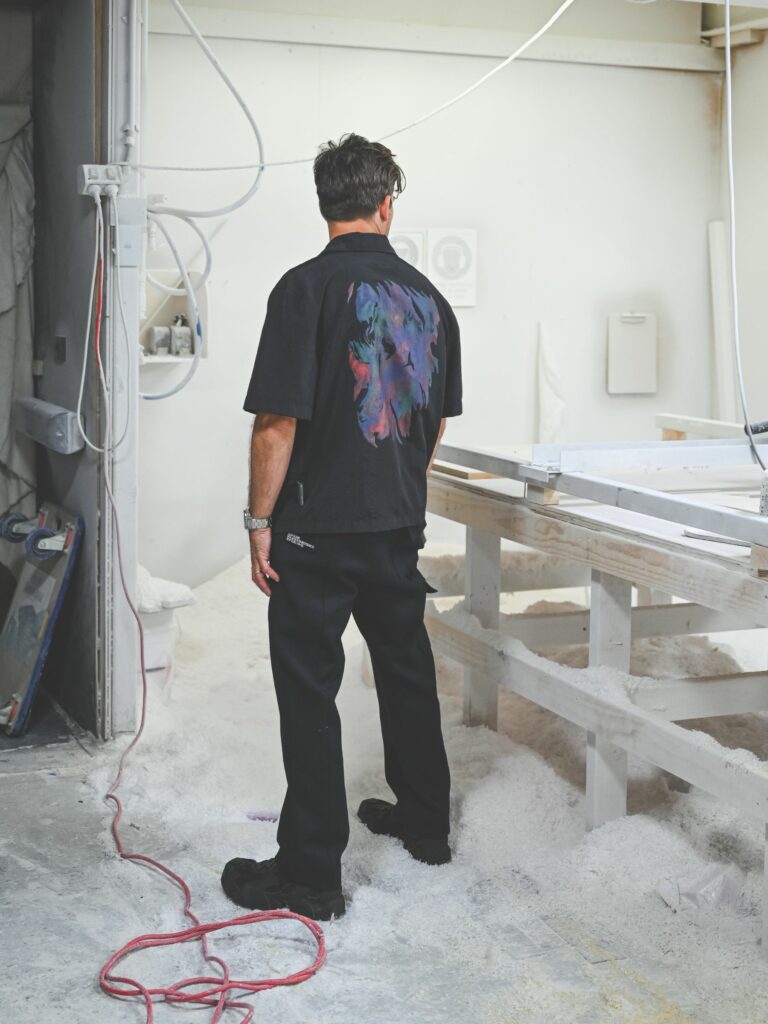
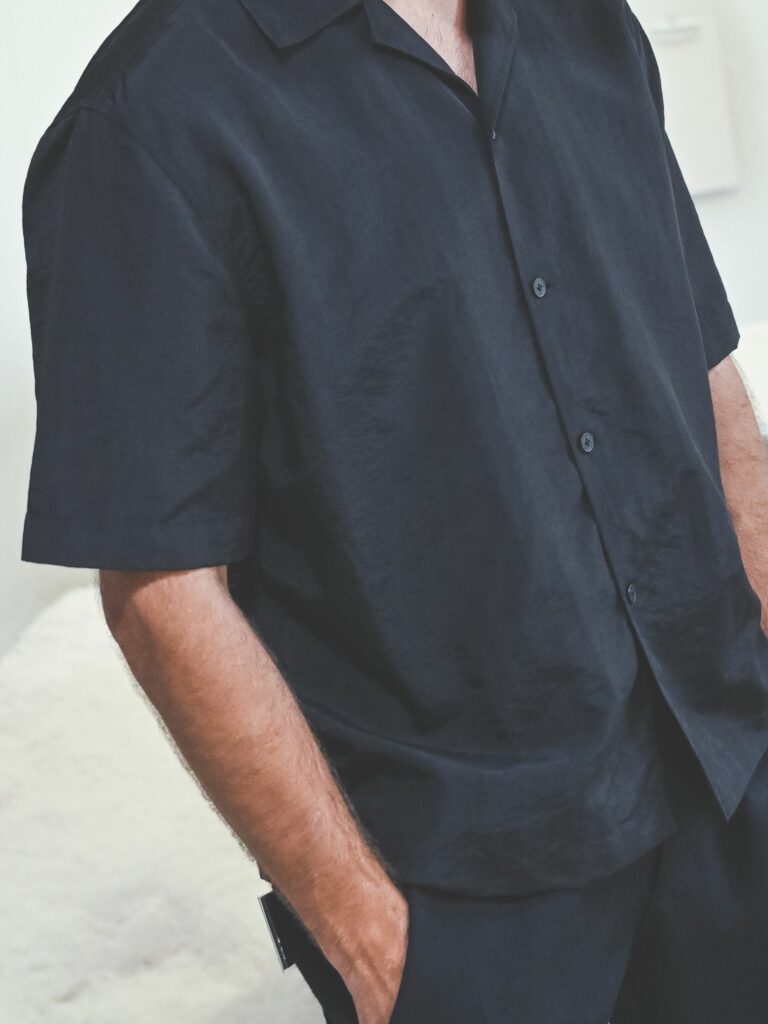
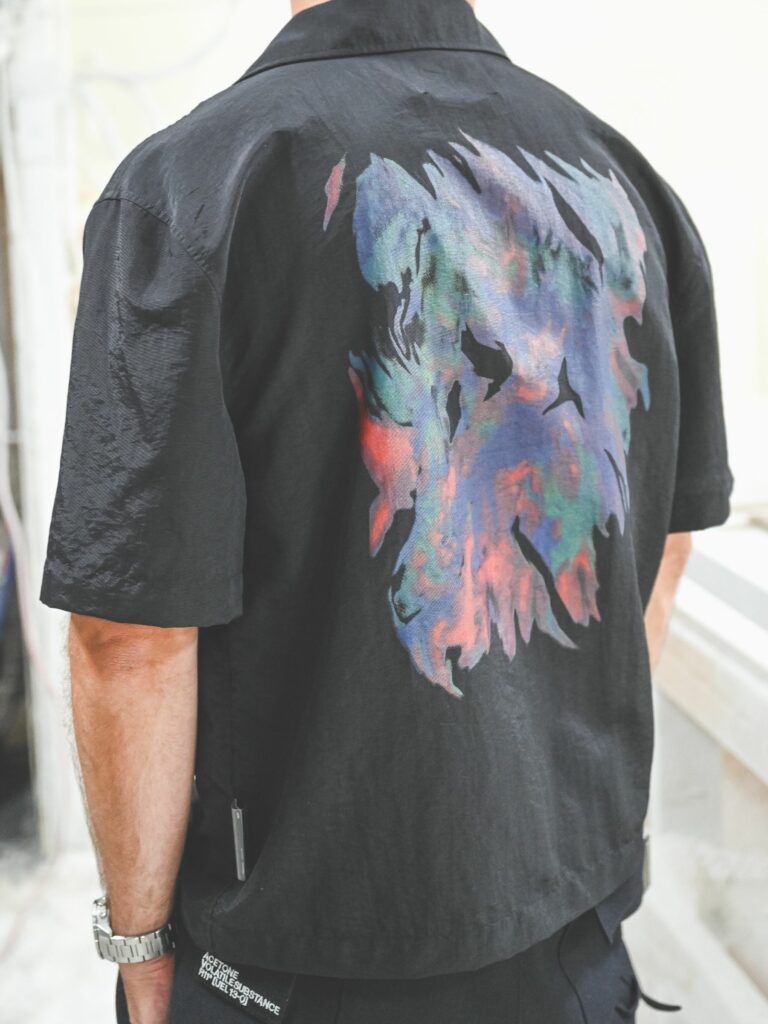

Growing up, did you have any style icons?
People like Bunker Spreckles, Nick Cave to name a few. I admire their individuality and the signature lens they apply to their style.
How about your surf icons?
Kelly Slater, Shane Dorian, Rob Machado, Kalani Robb, Tom Curren, Gerry Lopez. I could go on. They still influence me just as much today.
Do you go in with the same design process and frame of mind when it comes to conceiving ideas for your wetsuit and ready-to-wear collections, as you do for your surfboards?
The inspiration for the ready-to-wear is very influenced by my surfboard design background. It’s mostly in ways people might not notice at first glance, details like buttons and hardware made from cast surfboard resin, or a pattern that follows similar curves to a surfboard outline or graphic prints that have been lifted straight from the walls of our spray rooms. Like anything, you refer to what you know and I like to bring that unique design connection through all of my projects whether it be clothing, architectural projects, furniture or wetsuits. The surfboard thread connects them all in a way.
Fit Four
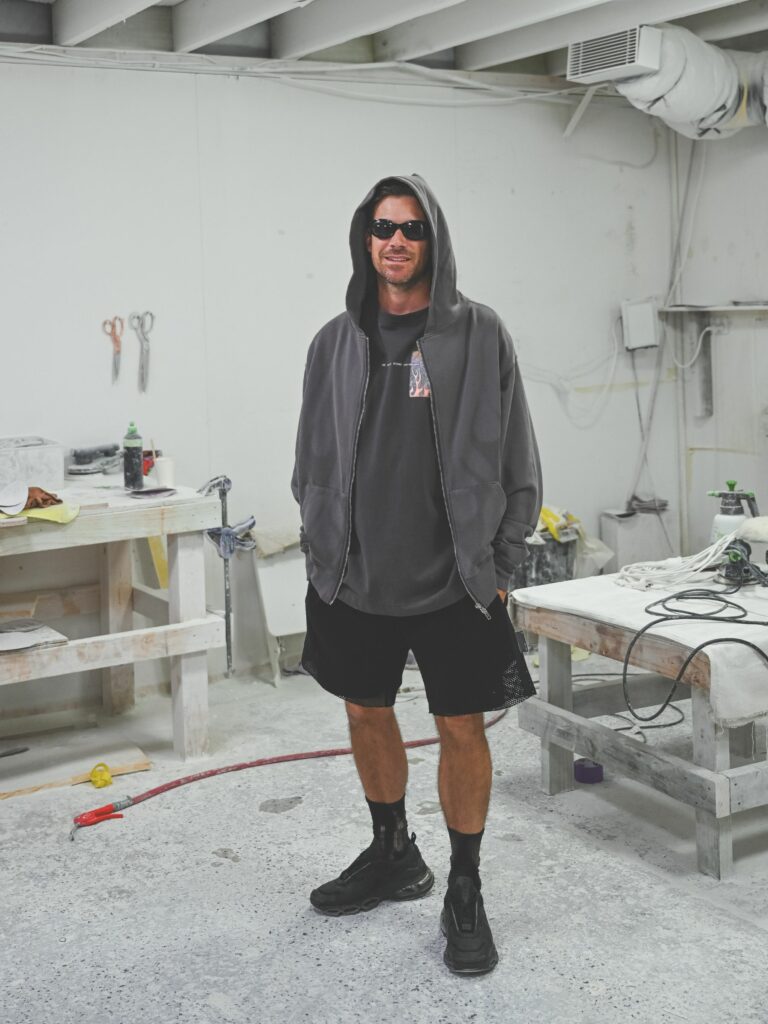
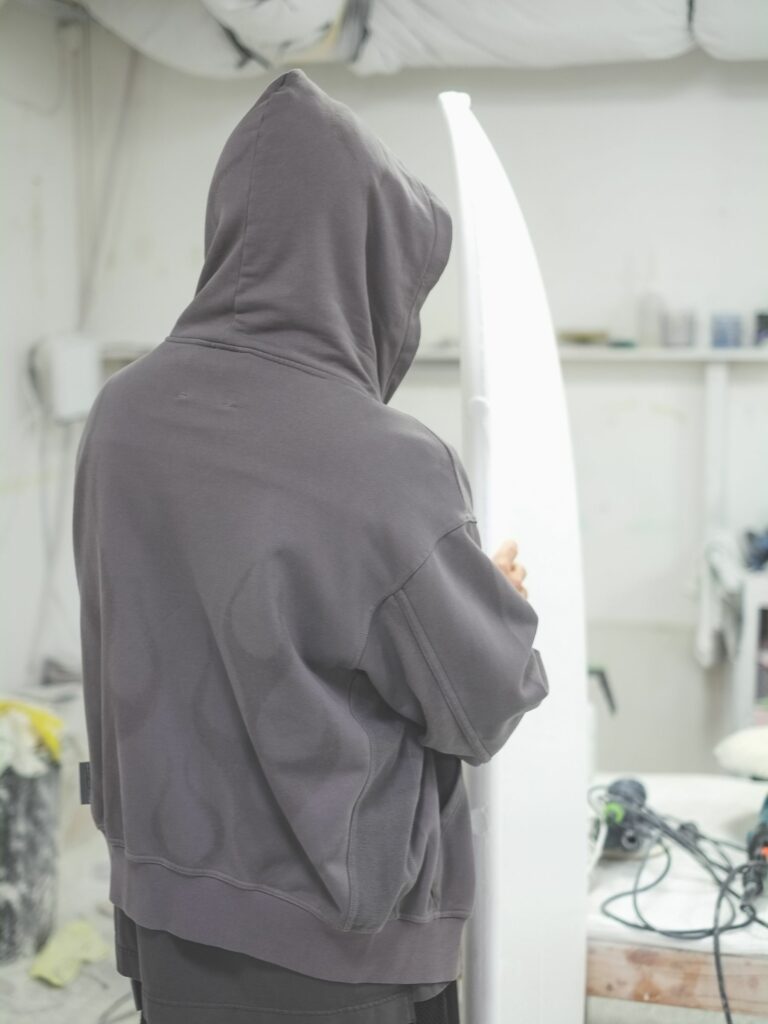
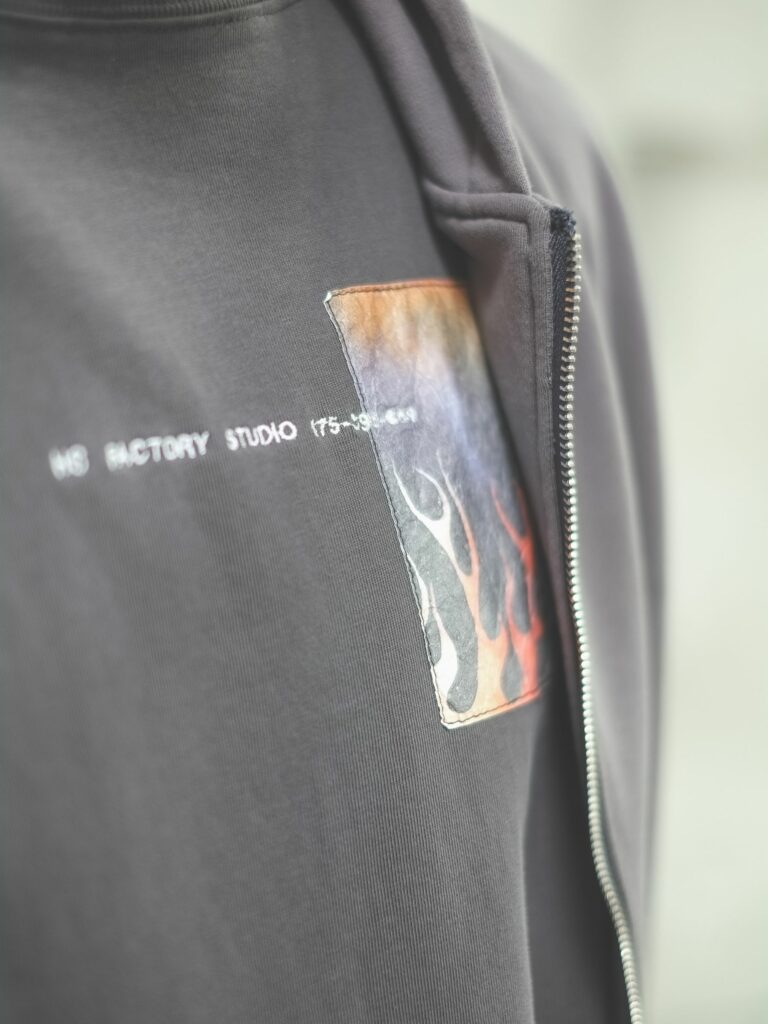

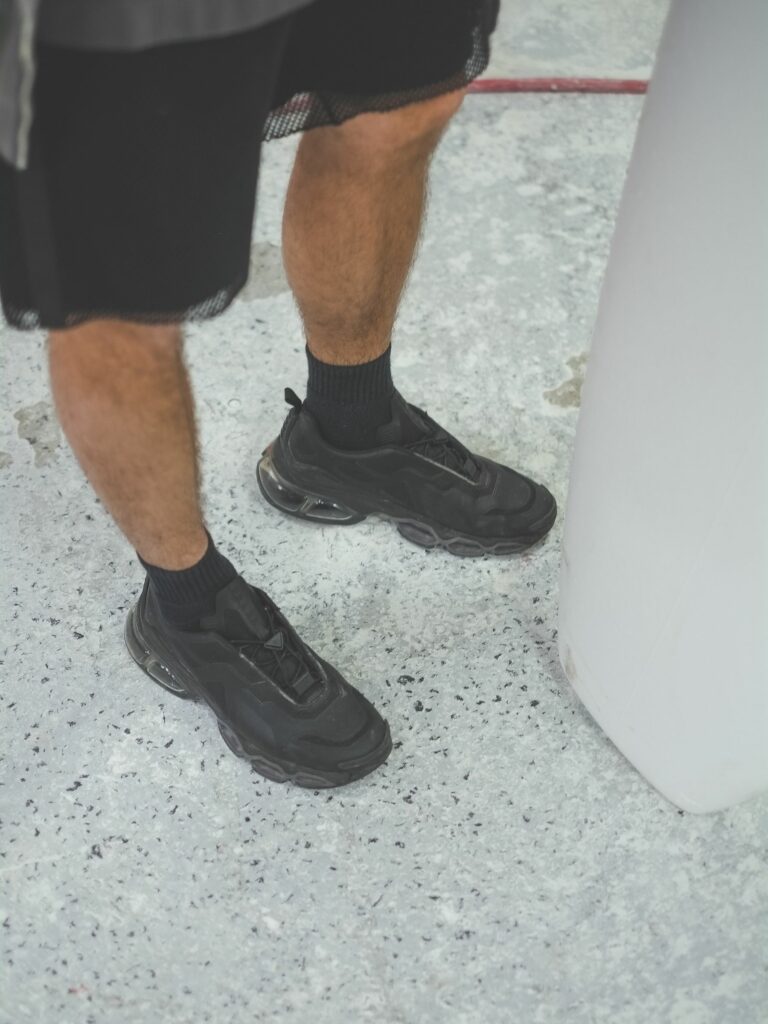
Haydenshapes joined forces with Dion Lee this year—how did this collaboration come about and what is the story you wanted to tell with the collection?
I just like what he does and his work has always stood out to me. Dion’s detail for tailoring is quite architectural and technical and he’s worked with neoprene a lot within his collections and knows the fabric well. I’d always been very intrigued in the concept of launching wetsuits as a brand and loved the idea of collaborating with Dion to not only bring a fresh take on things, but to re-imagine the wetsuit from material, to construction and shape and blend that with our surf DNA. The storytelling centers around performance surf, multi function and versatility incorporating some of Dion’s signature design features like his braided spine ‘gill’ and corsetry.
In fact, we have a lot in common from our tastes in art, decor, music and friends to our upbringing and values. We also have a similar work ethic which means we understand each other on that level too and both work very hard to achieve our creative goals.
Who is the Haydenshapes x Dion Lee collection designed for?
Everyone—performance surfing, swimming, water sports, diving. There’s more of a fashion spin applied to some styles more than others, particularly the women pieces. The collection is diverse and the Japanese Yamamoto Limestone rubber is ultra light weight and flexible, it’s not stiff like most standard petroleum based neoprene’s which I find more restrictive as a fabric. It’s much more soft and versatile.
You’ve been an IWC ambassador since 2018. Are you now a fully-fledged “watch guy” and how has that time been with the luxury Swiss brand?
I’m a geek for well designed products that create an experience and watches for me are a key part of my daily ritual. I was drawn to IWC for the engineering and craftsmanship, but also understatedness of the design. I’m not a flashy person but I appreciate nice things – nice watches are a great investment!
Do you see any parallels between your world as a surfboard/fashion designer and the world of watches?
I think so, more from a product perspective. I think both have the ability to connect with the wearer or the surfer in a way that’s quite personal and experience driven. The wear and tear of a watch or the compression dents on a board can hold memories whether they are yours or passed down from someone else.
What watch do you wear on the daily?
The IWC Big Pilot Chronograph Top Gun in Ceratanium Black.
Fit Five
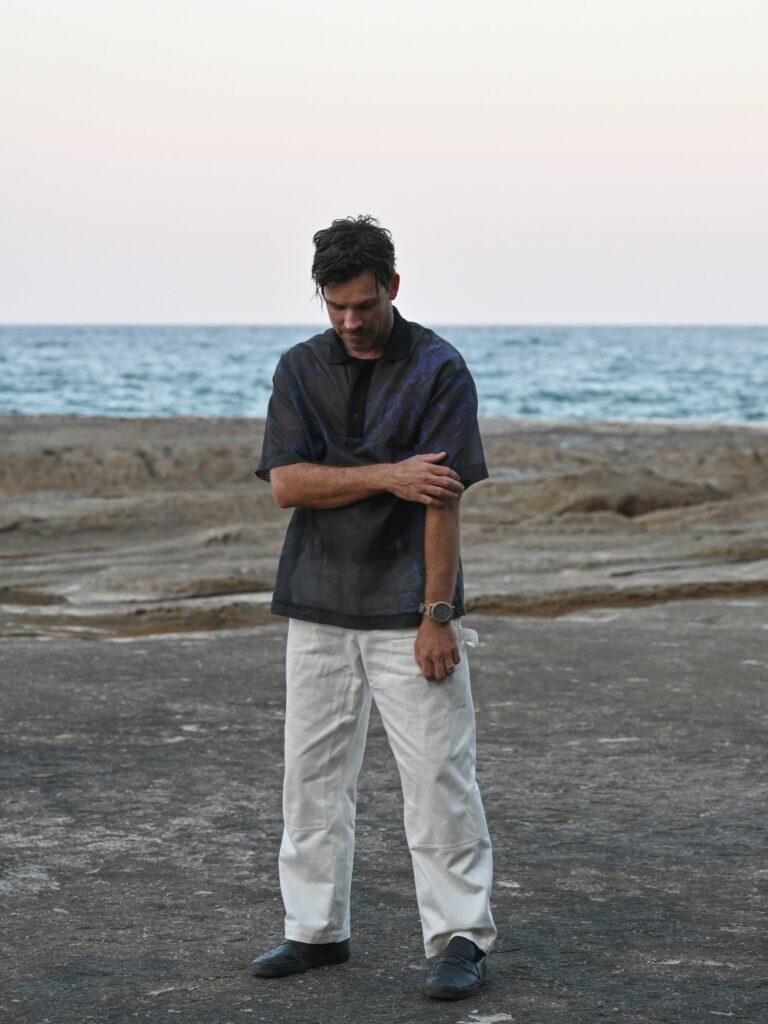
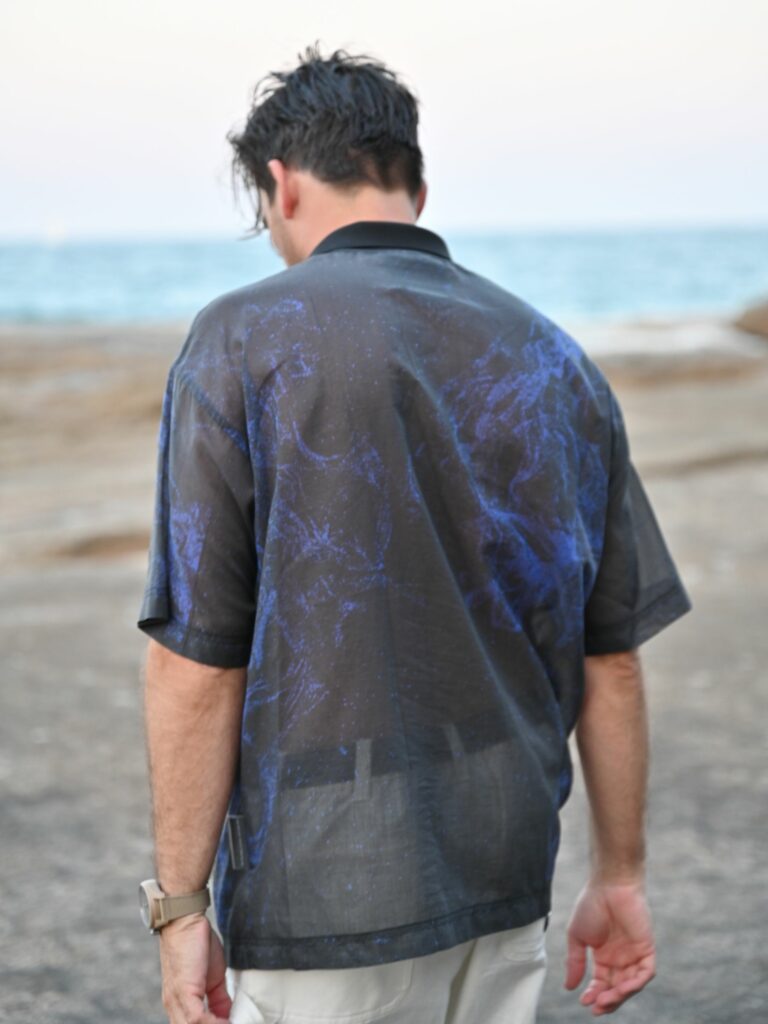
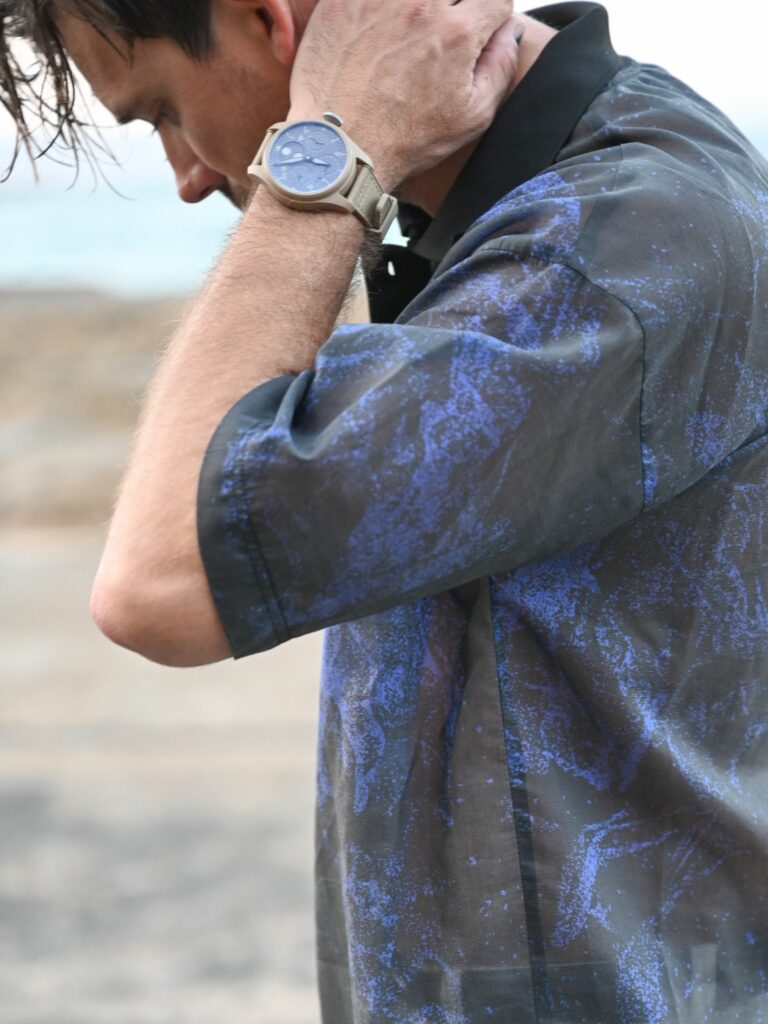

How would you describe your style, Hayden?
Uncomplicated. Often repetitive. Versatile staple pieces made with high quality fabrics. Occasional hits of colour, but mostly black.
Do you have a proudest career moment to date?
Seeing people out in the water all over the world surfing and enjoying the boards—especially those smaller and more remote surf communities. Then more recently, seeing people out in the street wearing our clothing. That’s a cool feeling and one I’m always very grateful for.
What’s the most practical/functional thing you wear for work?
White tee and our Haydenshapes Painter ‘utility’ Pant so you don’t get any dark fibres on the surfboard blanks as your shaping and before lamination.
Where’s your favourite surf break in the world?
A few close mates and I have a wave in Mexico, off the beaten track, that we call ‘The Mistress’. It doesn’t break often, but is always worth the strike mission when it does. Much more convenient when I was living in LA!
And who’s your favourite surf buddy?
My daughter Alaia. She’s 6.
What does your ultimate holiday/vacation look like?
Limited wifi. Sun. Waves. No crowds.
What’s the most sentimental item you own and why is it special?
I wouldn’t say I’m overly sentimental with items, but something I have held onto and kept is the first surfboard I ever shaped and glassed. It doesn’t have a logo, those came later, just this hand drawn dragon graphic on the bottom that a friend of mine drew for me which I was very stoked on at the time. It’s beaten up. I surfed it a lot back then and it went pretty terribly but it created a spark for me that led me here, so I’ve let it stick around.
Check back for another edition of ‘Five Fits With’ next week.









